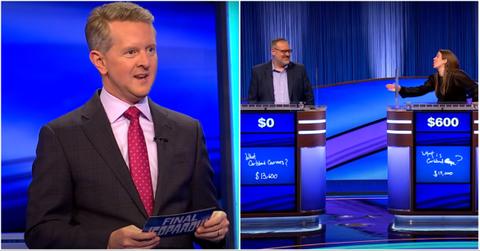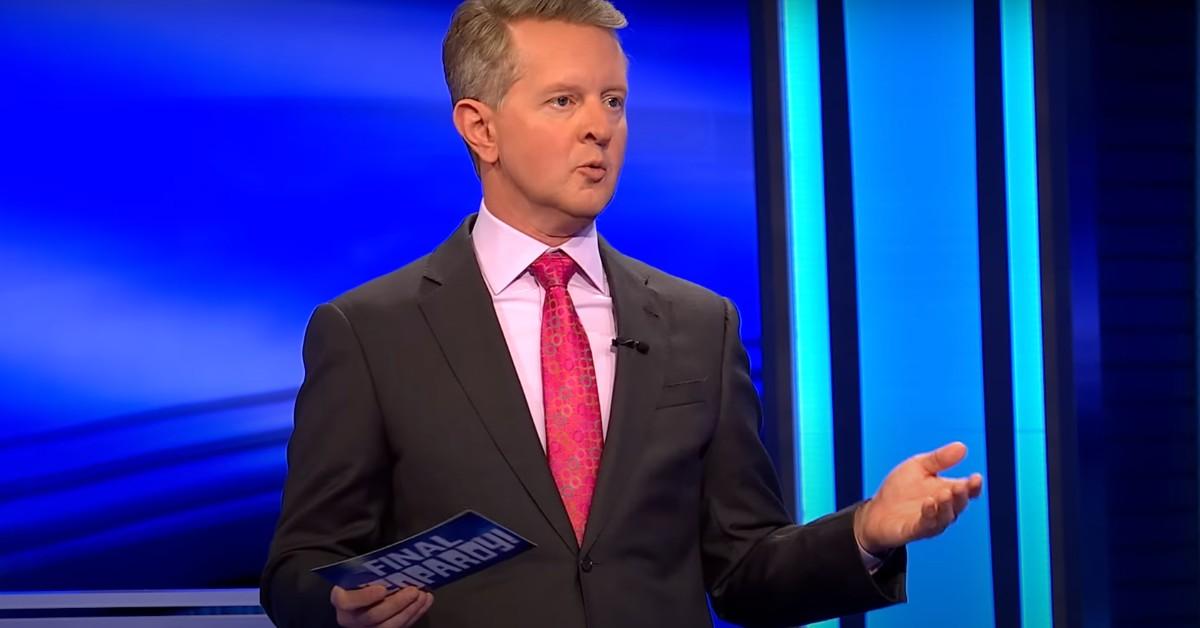Spelling in 'Jeopardy!': Can One Letter Can Cost You the Game?
Can a spelling issue cost you the win in Final Jeopardy?
Published June 20 2025, 3:46 p.m. ET
There’s a reason spelling tests exist in school and not at trivia night. Some of the smartest minds out there can recall dates, data, and obscure facts — but trip over a word like “pharaoh.” In today’s world of autocorrect and predictive text, spelling is no longer a daily mental muscle. The question is … What happens when that safety net disappears? For contestants on Jeopardy!, that’s not just a hypothetical — it’s a high-stakes reality.
With all of this in mind, it isn’t too surprising to learn that many fans of the game show are asking the same question: Does spelling count in Final Jeopardy? After all, it is easy to imagine how intense and memorable an episode of the show would be if a contestant lost thousands of dollars because of a single misplaced vowel.
So, should you avoid going on Jeopardy! unless you have pristine spelling skills? Keep reading as we take a closer look at the official rules.
Does spelling count in Final Jeopardy when autocorrect isn’t there to save you?
Not exactly. According to the rulebook on the official website for Jeopardy!, there are five key rules every contestant should know. The fifth rule pertaining specifically to how much spelling matters during Final Jeopardy! Turns out, responses don’t actually have to be spelled correctly. They just have to be phonetically correct, unless the category calls for accurate spelling.
That means a contestant who writes “Jepurdee” instead of “Jeopardy!” could still earn points, assuming the judges believe the response sounds correct and doesn’t include any added or missing syllables. That judgment, however, is critical — it’s not just about how close you get, but whether the ruling panel agrees that your misspelling makes phonetic sense.
This rule reflects the show's understanding that not all intelligence is linguistic. Being bad at spelling doesn’t mean you’re bad at trivia, but it also introduces subjectivity. The moment your answer isn’t perfectly spelled, your fate is left to interpretation.
While spelling might be flexible, other rules aren’t.
In Jeopardy!, some rules are not as flexible as whether you spelled something correctly. For instance, if you forget to phrase your response as a question in Final Jeopardy!, you’re out of luck. Unlike in earlier rounds — where the host may gently remind contestants — the Final Jeopardy! round allows no such leniency. If you forget the “What is” or “Who is” preface, even a correct answer will be marked wrong.
Another common pitfall includes failing to satisfy the clue’s category, even though your answer is technically correct. For example, “goalkeeper” and “goaltender” are technically the same word. If the category, however, is specifically looking for a word with the word “ten” inside of it, “goalkeeper” would be wrong even though it was also the correct answer.
Ultimately, the judges and the host have the final say when it comes to the rules.
The judges — and to some extent the host — have the final say. This means even with clear rules, interpretations may vary. Over the years, fans have debated whether different hosts have applied the rules with equal consistency. For example, some fans believe that the long-time host Alex Trebek held a firmer line on what counted and what didn’t. Regardless of who's at the lectern, one truth remains: No matter how smart or prepared you are, the decision of the host and the judges is final.
This discretion is both a safeguard and a source of controversy. On one hand, it allows room for human logic when a contestant writes “Einstine” instead of “Einstein.” On the other, it leaves just enough gray area to fuel message board arguments and social media storms when rulings don't go a contestant's way.
In the end, if you’re smart but can’t spell, you’re not necessarily doomed — but you’re not in the clear either. Precision isn’t just about facts on Jeopardy!; it’s about knowing the format, respecting the rules, and understanding how close is “close enough.” While the show isn’t a spelling test, it's also not forgiving of ambiguity.

